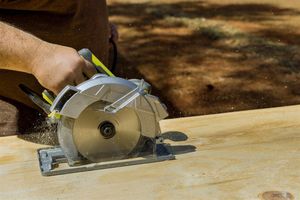KENNESAW, GA / ACCESS Newswire / October 8, 2025 / Most of us associate getting older with complications and issues. These problems seem unavoidable and just a natural part of aging. However, as more and more research comes out about mobility, it's becoming clear that mobility, rather than chronological age, is the new measure of aging.
"Mobility is a new predictor of aging," said Sheewayne Sandoval, CEO of BenCura Rehabilitation Services. "The more mobile you are, the less likely you are to have complications like blood clots, pressure injuries, contractures, muscle atrophy, falls, and respiratory and circulatory declines. Mobility is not just a physical thing, it's really a gateway to a person having more independence, safety, and quality of life.
"I recently listened to The Mel Robbins Podcast with guest Dr. Vonda Wright, MD, who is a double board-certified orthopedic surgeon, and she was discussing the importance of movement and mobility. She talked about how the body is built for movement. If we were not built for movement, we would be shaped more like a mushroom, but instead we have these arms and legs with large muscles that are clearly meant to move. If we are not moving them, we will become weak and frail."
As Sandoval explained, staying mobile not only prevents major complications, it helps individuals stay independent and safe and can also impact the mental and emotional well-being of an individual.
"Mobility is directly correlated with promoting independence and daily function, allowing people, patients, or individuals to complete everyday tasks like bathing, dressing, cooking, and navigating their environment. This helps that individual stay self-sufficient, rather than relying on a caregiver. Enhancing mental and emotional well-being is another impact of continued mobility. If you're able to move freely and engage in your activities, it boosts your confidence, your mood, and it reduces the risk of depression and social isolation. All of this in turn also lowers your risk of things like falls and fall related injuries."
There are simple things we can all do to increase our mobility daily, including:
Doing a tree pose while we brush our teeth or wait for our coffee.
Taking the stairs instead of the elevator.
Take movement breaks from sitting.
Aim for at least 7,500-10,000 steps a day.
Take up a practice like yoga or tai chi, that improves mobility and flexibility.
"Mobility isn't just useful, it's medicine," said Sandoval. "Mobility is the path to longevity and independence, and you're never too old to increase mobility."
However, this talk of mobility and aging is especially important as we look at the future of skilled nursing facilities and our aging population.
"At BenCura, we train our therapists to understand that movement is the framework for improved independence, quality of life, and preventing complications," said Sandoval. "We understand that when patients come to us, we're looking at skilled programs that will promote movement and provide certain home exercises where they can continue to carry on that movement throughout the day."
When skilled nursing facility residents are not mobile, it affects their stay at the SNF, puts pressure on overworked staff, and can result in increased falls and rehospitalizations. However, as Sandoval explains, an effective restorative care program can help improve mobility in patients who are already struggling and prevent loss of mobility in other patients.
"Our restorative programs are designed and implemented by therapists to improve the quality of life and quality measures within a skilled nursing facility," said Sandoval.
BenCura offers restorative programming to partnered Skilled Nursing Facilities such as Pulmonary Rehab, ADL Retraining, Seating and Positioning, Walk and Dine, Dysphagia Management, Falls Prevention, and Contractures.
"All of these programs can help skilled nursing facility residents regain or retain their mobility lost through various injuries or spells of illness, and that has a huge impact on their physical health," said Sandoval. "Additionally, these restorative programs that allow patients to increase and improve their movement and independency is a direct correlation to improved mental health. The more we get patients in skilled nursing facilities to move, the less likely that skilled nursing facility is to have diagnoses of depression that can be rapid in skilled nursing facilities. You have your patients that go through isolation and lack of social interactions when their movement is limited. Movement increases a patient's ability to engage in more social activities and interactions with their peers, friends, family, and other loved ones."
As Sandoval explains, these impacts are not just good for the skilled nursing facility residents, they are also incredibly beneficial for the skilled nursing facility itself.
"Movement in a strong restorative program that has been designed and implemented by a skilled trained therapist who understands movement and joints and keeping the body mobile can directly affect the facility's entire quality measures and five-star rating," said Sandoval. "Lack of movement and a restorative program that isn't running efficiently and effectively, you get more sedentary patients. Once that happens, then you're increasing the risk of falls, increasing the use of psychotropic drugs, increasing contractures, stiff bones, which is a direct rating on your quality measures. This is how skilled nursing facilities five-star ratings go down-when patients are not moving, when you don't have a strong restorative program."
In addition to quality measures and five-star ratings, an effective restorative program and increased mobility can also have a positive impact on skilled nursing facilities who are struggling with staffing issues.
"The less a patient is able to do for himself, the more the caregiver needs to do for that patient, which means you need more staff," said Sandoval. "Decreased mobility means decreased function and independence for patients, and if you have decreased function, you need more staffing because patients can't turn themselves, they can't go to the bathroom by themselves. They don't have the proper ability to transfer from bed to chair. They can't take off their clothes or their shoes. You need staff to do that, and if we make a point to keep them mobile, that improves independence where you do not need to rely on the staff as much."
Staffing is a key pain point in healthcare across the board where increased mobility can help, but increased mobility can also help in another key pain point: rehospitalizations.
"A program or a skilled nursing facility or a hospital that doesn't directly focus its therapy team on implementing movement throughout the journey of a patient's spell of illness has an increased risk of that patient being re-hospitalized," said Sandoval. When patients remain in a hospital bed or skilled and long-term nursing facility without being turned or mobilized, they face a higher risk of balance impairments, reduced safety, skin breakdown, and even incontinence. A patient may be deemed medically stable and discharged from a medical setting yet still be functionally unstable. Without access to a strong rehabilitation or restorative program, these patients often lack the movement and activity needed to regain strength and balance. As a result, they may return home, or to their prior level of care, only to experience a fall, sometimes within days, leading to avoidable re-hospitalization.
"BenCura has a strong evidenced-based, interdisciplinary rehab model, and movement is in every level of care-skilled nursing, restorative, and functional maintenance. We help facilities have a mindset of ‘Movement is our mission,' and this mindset benefits everyone-the staff, the facility, and the residents."
To learn more about how BenCura can help your facility, schedule a free discovery call with us here: https://bencura.com/contact/.
BenCura Rehabilitation Services is a premier contract rehabilitation service committed to providing quality care to patients. BenCura partners with acute care and critical access hospitals and skilled nursing facilities to provide high quality physical, speech, and occupational therapy at a lower cost than traditional in-house models. For more information about BenCura Rehabilitation Services and our partnership with hospitals and long-term care facilities, please visit: bencura.com.
CONTACT:
855.423.6287
info@bencura.com
SOURCE: BenCura
View the original press release on ACCESS Newswire






